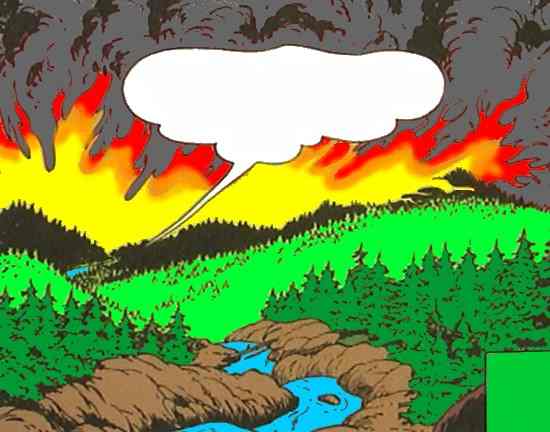 |
|
VP1
Vacation Time - 1950 Synopsis:
Donald and the nephews are on vacation in
the deep woods and Donald tries to take pictures
of a deer. But it is not that cooperative...
Comments:
The story holds just about all the
ingredients you can wish for in a comic book -
suspense, mystery, slapstick, nature panoramas,
running gags, rescues, a villain, good luck, bad
luck, narrow escapes, parental love, atmosphere.
Furthermore, Barks experimented heavily with
panels in unusual shapes thereby strengthening
the graphic flow of the story.
Barks' comments:
Well, I liked the forest fire story in the 1950
25-cents Vacation Annual. It was serious - I
couldn't create suspense without having them (the
Ducks - Editor's remark) in real danger, and real
danger means the fear of death. So all of the
times these ducks got in bad situations they did
have that opportunity of dying in case they got
clobbered. It made it more true to life to have
them up against these impossible situations, in
which they could lose their lives if they didn't
win. And in the forest fire sequence, you bet
they were in danger. It made the story memorable.
|